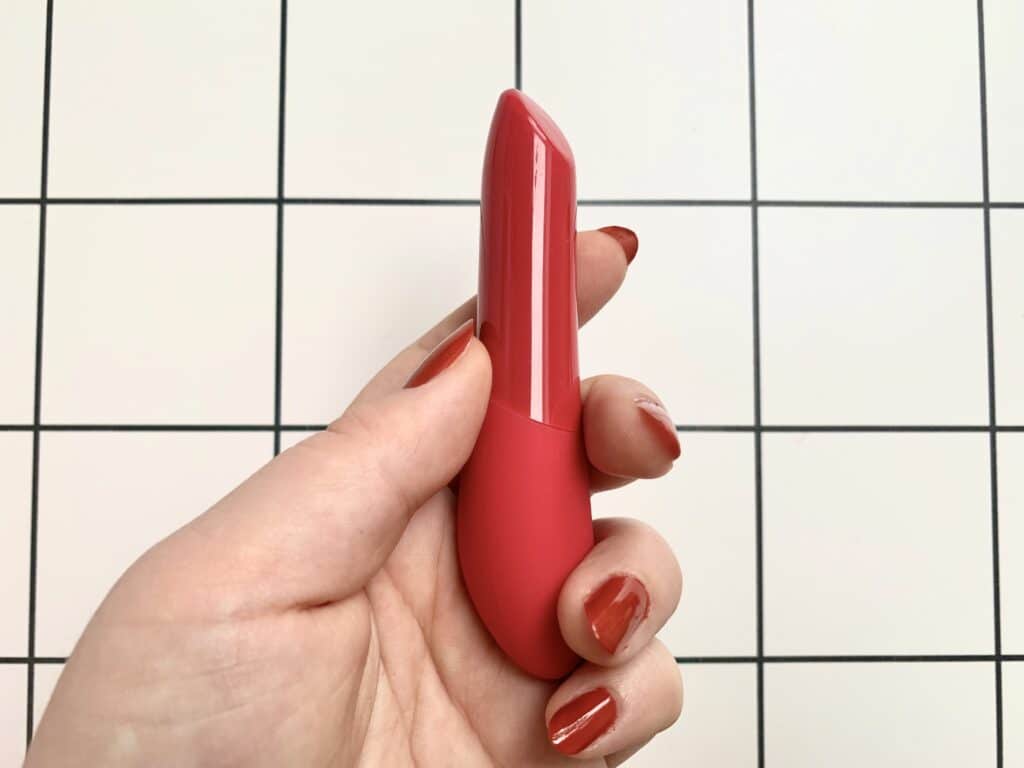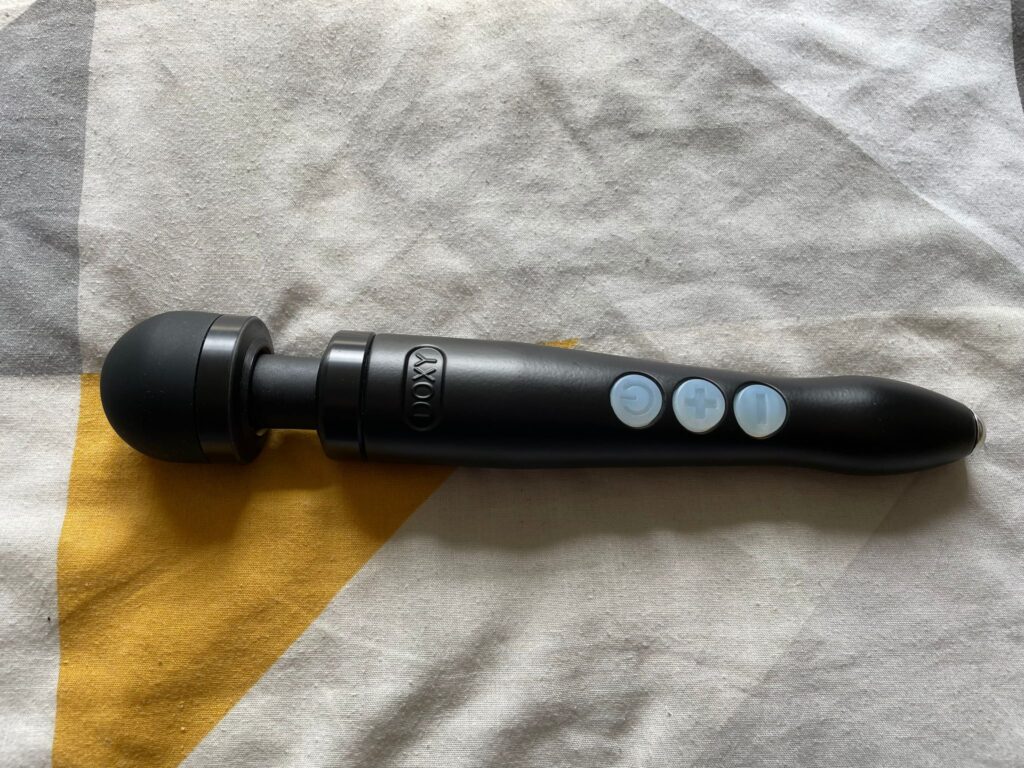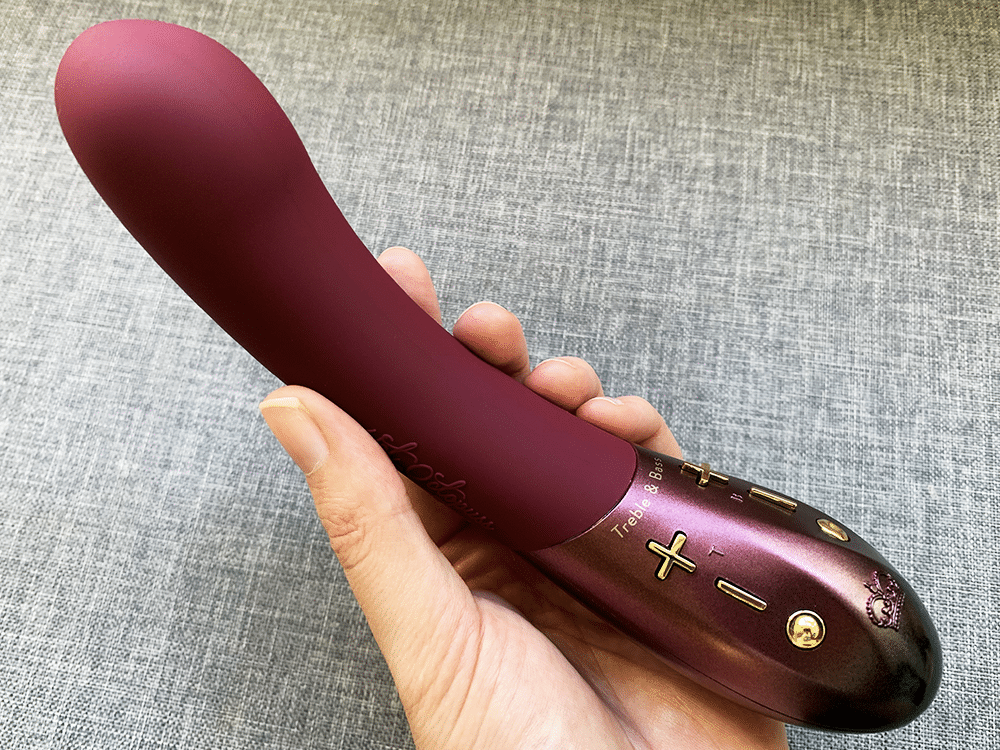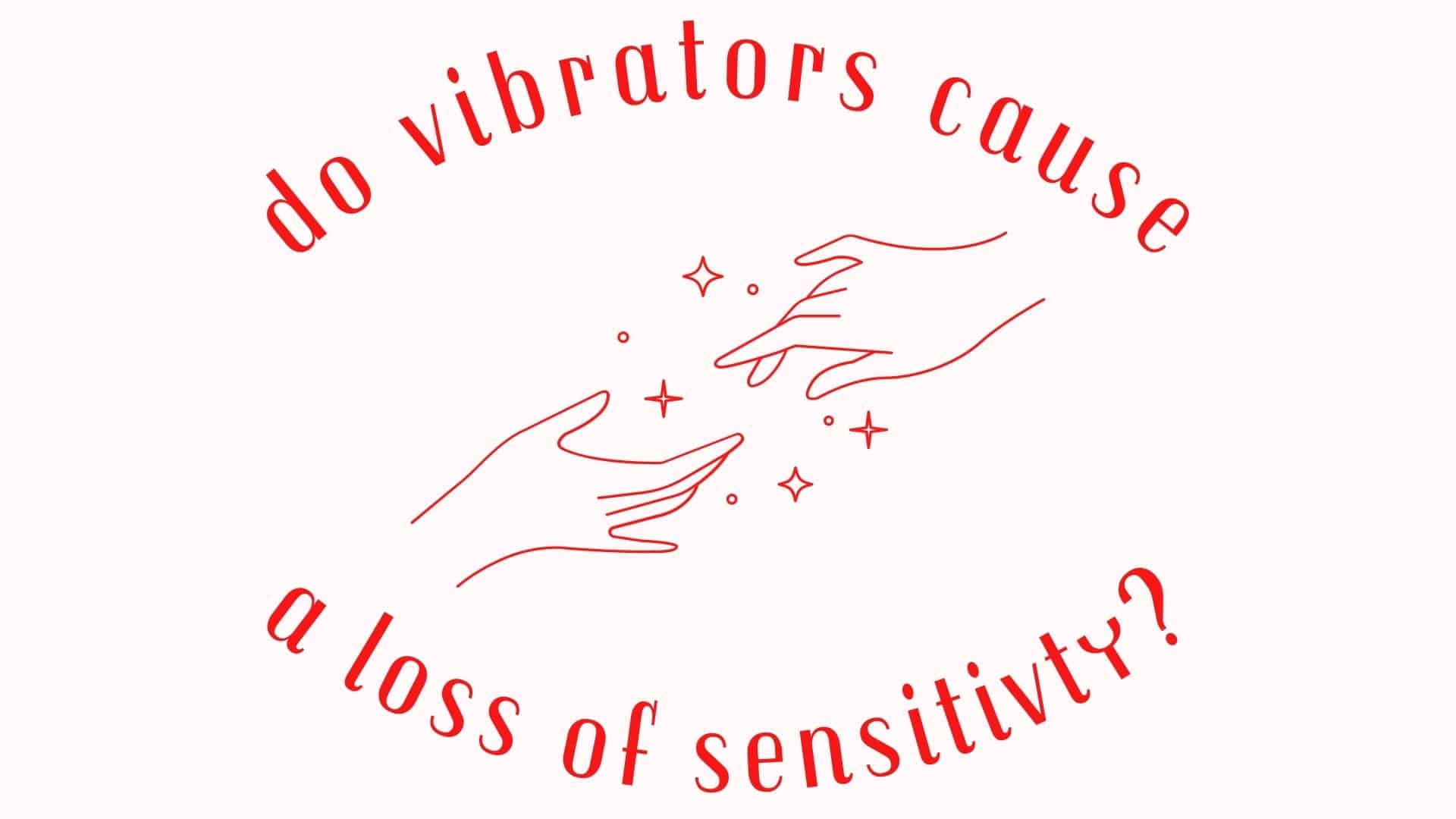
Does using a vibrator cause you a loss of sensitivity in your clit, or make you addicted to the vibrations? What if I can no longer enjoy my partner once this giant vibrating orgasm machine enters my life?
These are the kinds of worries that can make vulva owners reluctant, or even scared to use a vibrator.
Well, I’m here on a vibrator myth-busting crusade. Here are all of your vibrator questions, answered!
I’ll do my very best to keep my ranting to a minimum because I want to give you concrete, science-based answers to help you love your vibrator. After all, everyone deserves a good, worry-free orgasm.
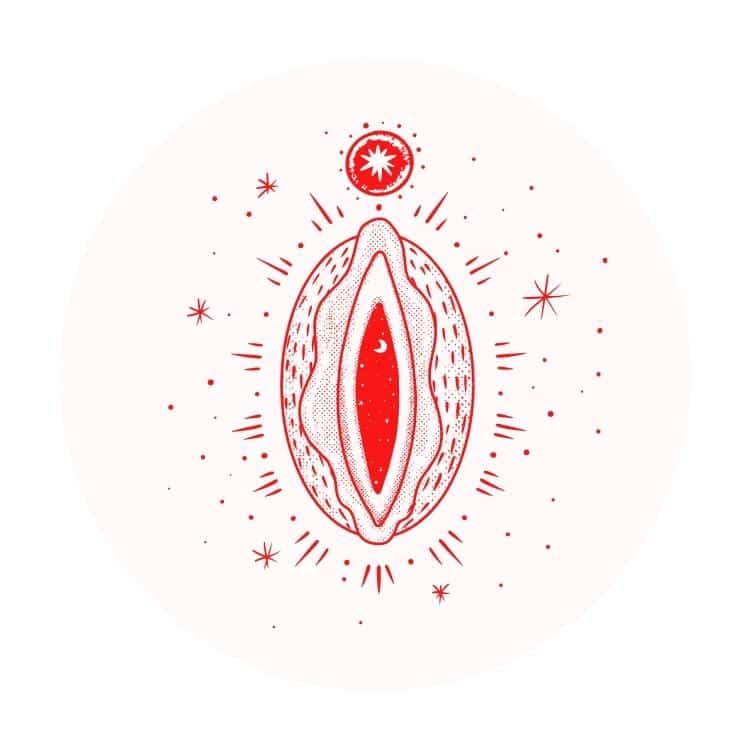
Is Dead Vagina Syndrome a Thing?
Short answer: no.
If I’m being really nit-picky (which I always am), it should’ve really been named dead vulva syndrome. But, it doesn’t matter, because it’s not a real syndrome. That does give you an idea, however, that this bogus term was created by people who don’t really understand the anatomy of vulvas and vaginas.
Dead vagina syndrome is a terrible phrase in many ways, and it gives a completely wrong impression of what happens to your genitals when you use a vibrator.
Vibrators stimulate your clit, g-spot, or wherever else you choose to use them. In the same way that your fingers or a dildo do, just a lot more intense! So, if you use them for a prolonged period of time, or have a very powerful vibrator, then you might feel tingly or numb for a short while afterward. In this way, vibrators can cause a temporary loss of sensitivity.
However, this doesn’t mean that your vibrator has caused you any permanent nerve damage! Think of it like clapping your hands vigorously for a while, or holding a drill — your hands might go tingly, numb or even hurt for a couple of minutes, but they’ll eventually return to normal. No harm done!
It’s likely that a similar thing would happen if you were to stimulate your clit for an hour or more with your fingers, or receive a really long session of oral (lucky you!). Vibrators just speed up the process, since they’re moving much faster than we could ever hope to move our fingers or tongues.
Of course, if your loss of sensitivity or tingling doesn’t go away, then it might be indicative of another problem. In that case, you should discuss it with a medical professional, who can find out the real cause. Additionally, make sure you’re using your vibrator safely. Using a damaged toy, or a non-waterproof vibrator in water is a recipe for disaster!

Will Using a Vibrator Make Me Unable to Orgasm Without It?
This is a worry that many women have when it comes to using a vibrator. There is a common idea that using a vibrator a lot will make you totally reliant on it, no longer able to orgasm with your partner.
Fortunately, that’s not the case. My educated guess for why many people believe this is because they use a vibrator alone and finally have an orgasm, then go and have PIV (penis in vagina) sex and can’t have an orgasm. It’s easy to blame the vibrator there for causing you a loss of sensitivity during sex. However, the other possibility is that the vibrator is providing the stimulation necessary for an orgasm, which just wasn’t there during sex!
Studies have found that around 75% of vulva-owners need some sort of clitoral stimulation to orgasm, and penetration alone just won’t cut it. Vibrators can be an easy and effective way to get that necessary clit stimulation. So, when you then have sex without it, it can feel like something’s missing. The solution? Use a vibrator during sex!
Dependency or Habit?
The other part of the story is how we use our vibrators, and whether we can get into a bad habit of using them to orgasm.
First off, I want to clarify that there’s nothing wrong or shameful about needing or wanting vibrations to orgasm! Some of us just need lots of intense stimulation, whether that’s on the clit or internally. If you’re happy to use your vibrator alone or during sex, then go you!
Vibrators are not inherently habit-forming, and won’t stop you from orgasming in other ways. However, you might find that, by always turning to your vibrator, you miss out on other ways to orgasm. Masturbating or having sex in the same way over and over again is what is habit-forming, and sometimes it can feel great to shake things up!
Learning how to self-pleasure without a vibrator can be challenging for some. It requires patience and, in some cases, persistence. A lot of it is also in your mind! I don’t mean that in a dismissive way — often, the worry that you won’t be able to orgasm without your vibrator can become a self-fulfilling prophecy. The more you explore yourself and your desires, the easier it can be to let go of this worry.
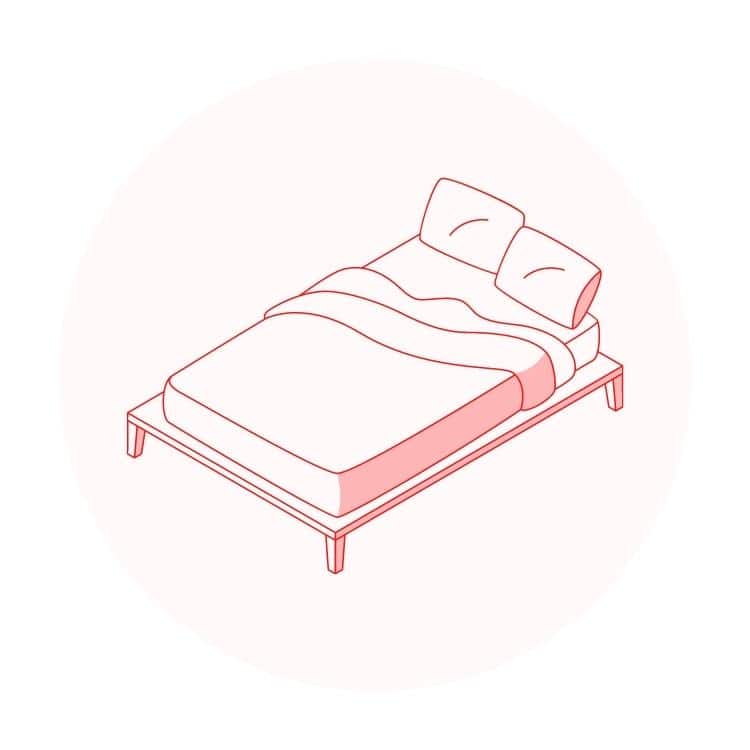
How to Avoid a Loss of Sensitivity from Vibrators
If you love the feeling and intense stimulation of a vibrator, but want to avoid feelings of numbness or tingling, then don’t give up on them!
There are a huge amount of vibrators and other sex toys out there, offering so many different sensations. Here are our tips for finding a vibrator that feels great for you…
Choose Rumbly Over Buzzy
When we talk about the kinds of vibrations that sex toys produce, we generally describe them as buzzy or rumbly. Vibrations exist on a spectrum, with high-frequency ‘buzzy’ vibrations on one end and low-frequency ‘rumbly’ vibrations on the other.
Very buzzy vibrations stimulate the surface of the skin and can feel ticklish or tingly to many people. Rumbly vibrations, on the other hand, penetrate deeper into the tissue and don’t usually cause the same numbness. So, if you’re struggling with your vibrator causing a (temporary) loss of sensitivity, try switching to one with more rumbly vibrations.
It can be hard to tell if a vibrator will feel more buzzy or rumbly without trying it out. That’s why we include a buzzy/rumbly rating on all of our Bedbible reviews! You can also try checking the reviews on online sex toy stores like Lovehoney to see what other people say.
Our favorite ultra-rumbly vibrators include…
We-Vibe Tango X
Despite its small size, the We-Vibe Tango X is a powerhouse of rumbly vibrations. Featuring a hard plastic shaft and lipstick-style tip, this bullet vibrator is perfect for firm pressure and pinpoint stimulation. Plus, it’s super versatile and perfect for use during sex.
Doxy Die Cast 3R
Wand vibrators are usually super intense, but can vary in their rumbliness. The Doxy Die Cast, however, is one of the most rumbly out there. It’s sturdy and easy to use, and will deliver incredibly powerful vibrations to your clit and vulva. Plus, it’s cordless and rechargeable.
Hot Octopuss Kurve
The Hot Octopuss Kurve is a g-spot vibrator with a twist. It combines two types of vibrations: Treble (buzzy) and Bass (rumbly). These can be enjoyed separately or together, allowing for endless experimentation and combinations! It also has a curved shaft and smooth, bulbous tip for easy g-spot massage.
Non-Vibrating Sex Toy Options
If vibrations of any sort just aren’t for you, then there are many other sex toys out there that have different ways of helping you reach the Big O.
One option is a clitoral suction stimulator, or clit sucker. Instead of using vibrations, these innovative little toys form a seal around the clitoris and use pulses of air that move a drum in the ‘mouth’ of sucker. This sends waves of indirect stimulation over the clitoris, deep into the internal structure of the clitoral network.
Our favorite clit suckers include the luxurious Lelo Sona 2 Cruise, the affordable yet powerful Satisfyer Pro 3+, and the innovative oral sex simulator the Lora DiCarlo Baci.
Alternatively, you could check out an oscillating sex toy like the Zumio or the Eroscillator. These feel more like a vibrator, but don’t actually vibrate at all. They have small, slim tips that move in super quick, circular motions, delivering very targeted stimulation directly to the clitoris. The Eroscillator can also be fitted with loads of different attachments to change up its sensations.

So Why Does This Myth Exist?
We’ll never know who started this rumour about vibrators causing a loss of sensitivity, but there are several reasons why it spread and persists to this day.
It’s a very unfortunate fact that some people feel threatened by vibrators. Part of this stems from disgust at the notion of women being in control of their bodies and their pleasure. A vibrator is a key to many women unlocking their sexuality and ability to actually enjoy sex, and there are too many puritanical thinkers out there who believe that that’s a bad thing. Therefore, a myth was born that dissuaded women and vulva-owners from using a vibrator ‘too much’.
Yet, I’ll try to give people the benefit of the doubt, too. Some of threat that people feel from vibrators also comes from insecurity. Many partners, cis men in particular, can see their partner’s vibrator as a sexual rival — something they have to compete against to please their partner.
However, the truth is that a vibrator is not something that can only be used for solo masturbation! A vibrator is simply a tool that can help provide the stimulation that you perhaps needs to orgasm. It’s not your partner’s enemy, but their ally!
Try to talk together about your vibrator and how you want to use it. This can help them see it for what it is, which is partly an aid during sex. Perhaps you could look for and buy one together, or get a wearable couples vibrator that both of you can benefit from!


